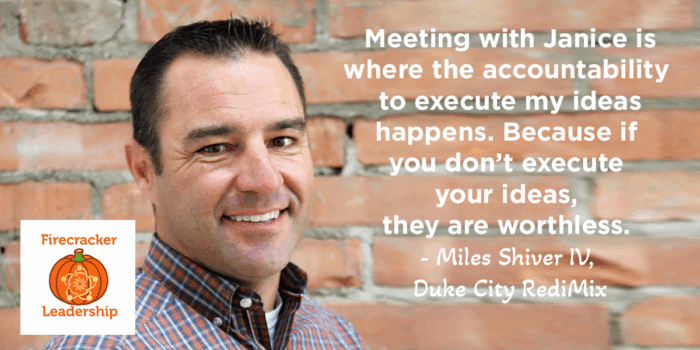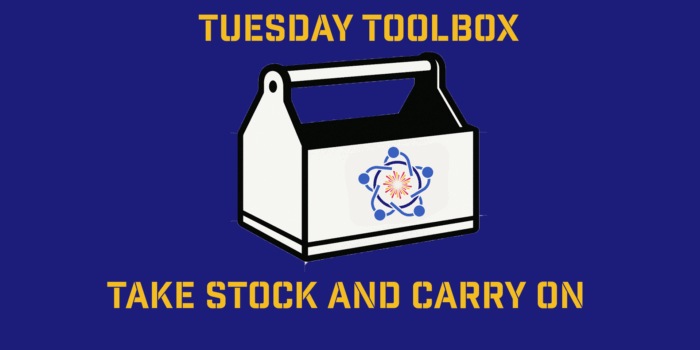What memories can you make this summer or these last 6 months of the year? What’s your first step?
“Definitely worth it.”
That’s what I thought to myself after a short but crazy family trip. My wife and I run a small business and a large family, including four kids.
As you can imagine, traveling can be tricky, as can be finding work-life balance. There’s always someone who needs attention–a soccer game here, a school event there, another wedding or important event. It’s a lot, and sometimes the temptation is to take the easy way out and just focus on work.
But over time, I realized my fear of embracing challenge could cause me to miss out on things that are important to me. So, after research and experimentation, I started using a simple two-word phrase that motivates me to get moving and take action:
Make memories.
Before you dismiss this simple two-word phrase, know that it’s based on principles of psychology that have to do with the way our brains process events and remember them. It’s also a way to practice emotional intelligence, the ability to understand and manage emotions in the moment.
So, how can the “Make memories” philosophy help you in business and life? Let’s discuss. (If you enjoy this article, you might want to sign up for my free course, which uses storytelling and research-based frameworks to help you and your team build emotional intelligence.)
A memory experiment
First, let’s try an experiment:
I want you to think about one of your favorite memories. A great vacation, the time you fell in love, something from your childhood.
Now, take a few moments to just … remember. Think about why you remember this event so fondly.
Now, try it again.
This time I want you to think back to a challenge you took on. I don’t mean something tragic (like the loss of a loved one). Rather, think of something that was tough, but which you overcame. It could be a horrible trip, a time you got rejected, an embarrassing moment.
Now, do the same thing: Take a few moments to remember what it was like, and what you learned from it.
With the first memory, you experienced positive emotions; it made you feel good. This despite the fact that things weren’t perfect: A great vacation had bad moments. Falling in love came with fear and at least some frustration. And your childhood had bad along with good.
Still, your memory was mostly positive.
And how about when you remembered the challenge?
Likely, you had some negative feelings … but some positive ones, too.
Often when I ask someone to share an embarrassing moment, they smile or even laugh as they tell the story. Meaning, even though it was a negative experience at the time, the memory takes on some positive meaning.
Why do our memories end up this way?
Here are two reasons.
You’re experiencing “rosy retrospection”
“Rosy retrospection” is a psychological occurrence that causes you to remember the past in a more positive way than you experienced it.
“When people experience a certain event, they tend to have both positive and negative thoughts, the latter of which are caused by various issues, such as disappointments or feelings of lack of control,” explains Itamar Shatz, a researcher at Cambridge University. “However, these negative thoughts are often short-lived, meaning that over time, people end up forgetting them, which leaves them with a more positive memory of the event.”
Although this may distort your reality to an extent (scientists call this “cognitive bias”), it can also serve a useful purpose: helping you to get over negative events and increasing your sense of well-being.
You’re traveling through time (mentally)
Estonian psychologist Endel Tulving wrote extensively about episodic memory, the ability to mentally reconstruct personal events from the past.
In essence, this unique human ability is a form of “mental time travel.” It’s like stepping into a time machine and going back to the past, and that experience allows us to see events, not only as they occurred, but in relation to all our collective experiences. This adds deeper, richer meaning to those experiences.
What’s the lesson?
Sometimes, it’s too easy to sit back and let life pass you by–because you’re afraid of challenges, or you’ve gotten burned when trying something new.
But remember: When you try new things, you’re learning and growing. Additionally, you’re making an investment–an investment into your bank of memories.
In the future, that investment will pay rich dividends. The more things you try, the more unique memories you’ll have to look back on. Those positive experiences will make you feel good.
And the challenges you’ve overcome? Those will make you feel good too.
So, whatever you do, don’t stay still. Take action.
Make memories.
Your future self will thank you.
BY JUSTIN BARISO, AUTHOR, EQ APPLIED



